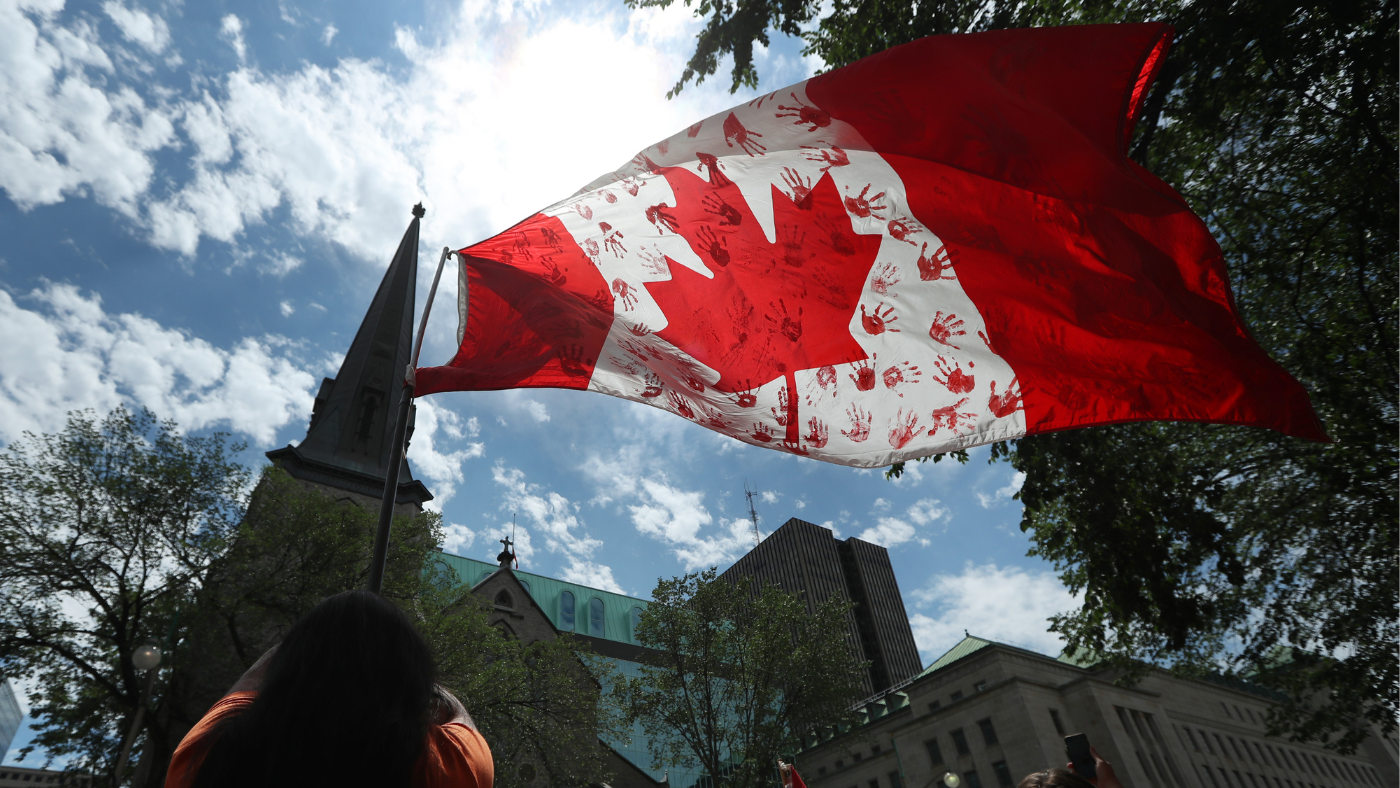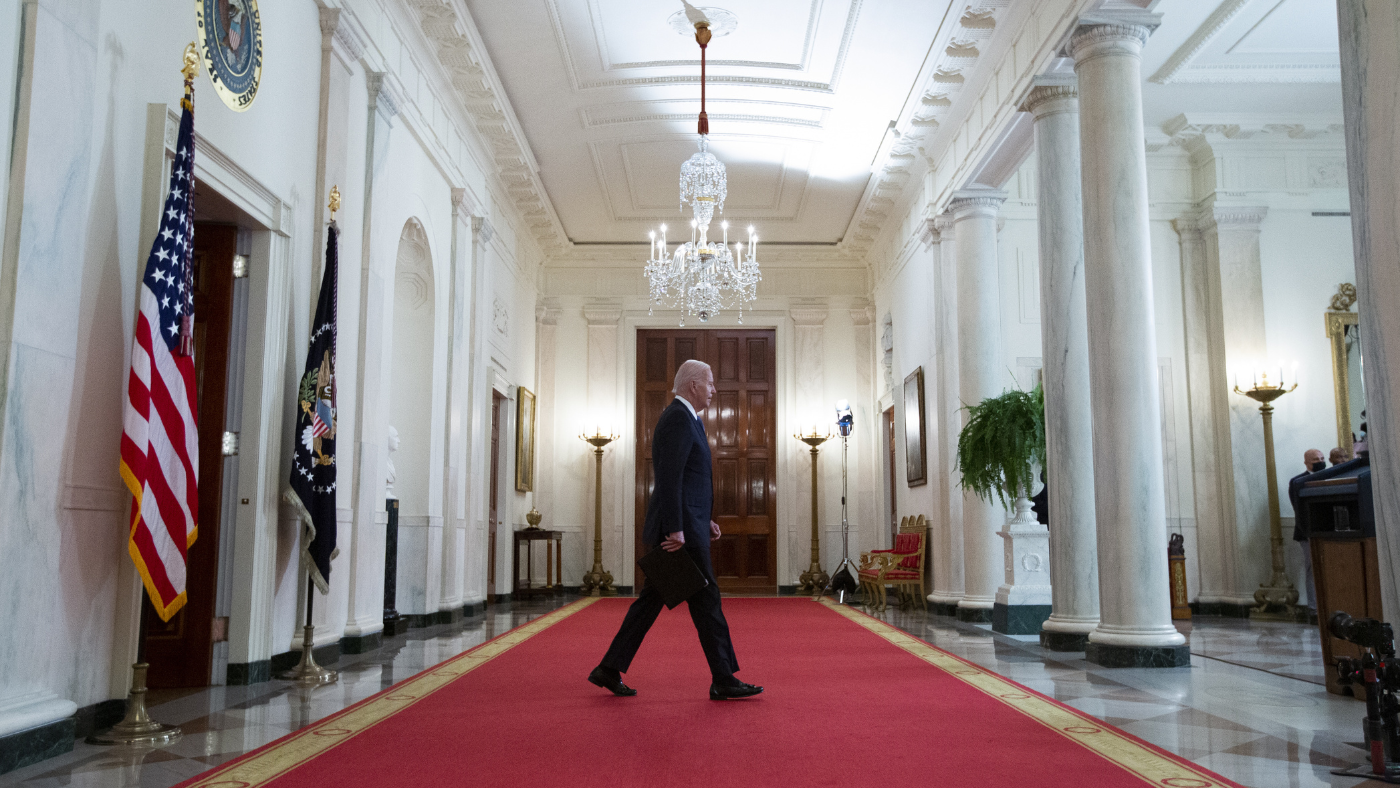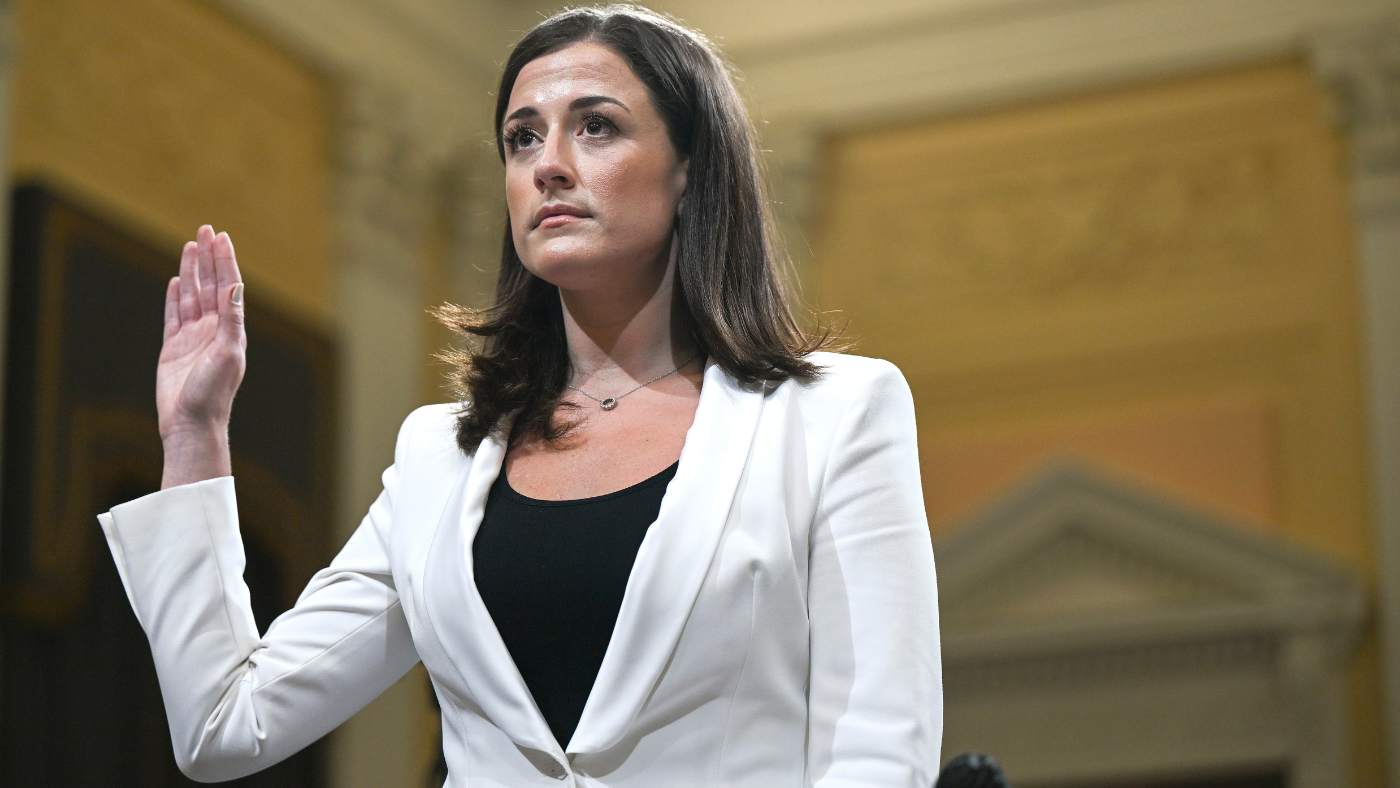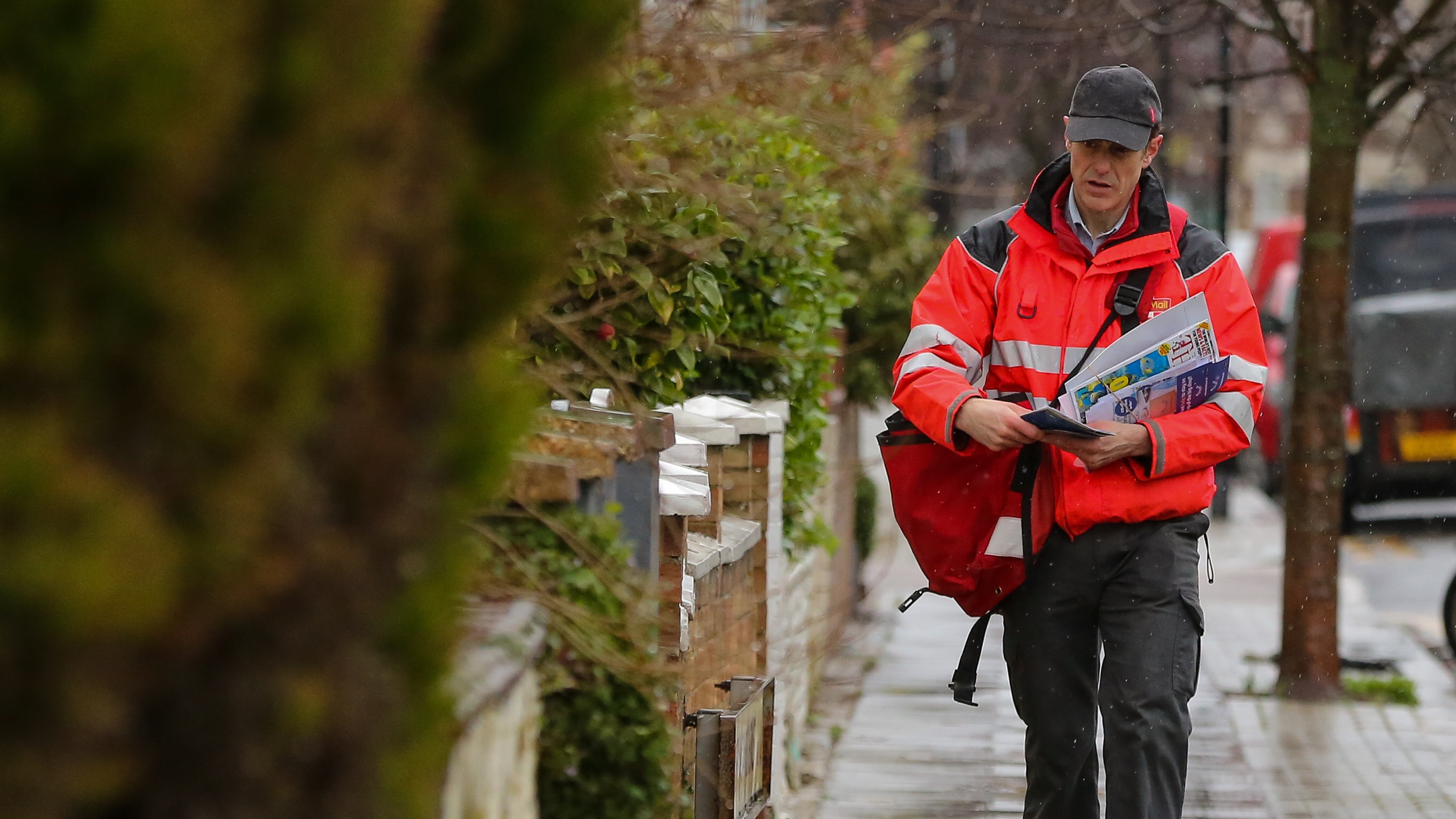‘Ignore Valentine’s Day at your peril’
Your digest of analysis from the British and international press

- 1. Our relationship with Valentine’s Day is bizarre, yet we still struggle to say no to the day
- 2. Digital kompromat is changing our behaviour
- 3. Britain’s long consumer binge is ending – and the political fallout will be huge
- 4. Adam Kay’s dangerous misogyny
- 5. Why the Beijing Olympics are so hard to watch
A free daily email with the biggest news stories of the day – and the best features from TheWeek.com
You are now subscribed
Your newsletter sign-up was successful
1. Our relationship with Valentine’s Day is bizarre, yet we still struggle to say no to the day
Stefano Hatfield at the i news site
on sharing the love
“If you’ve only just realised it’s Valentine’s Day, the only possible course of action remaining is to go big,” says Stefano Hatfield at the i news site. “We all know it’s nonsense, don’t we?”, one of several occasions that are “the cynical constructs of greetings card manufacturers… florists and chocolatiers”. The 14th of February is “pregnant with pitfalls”, and it’s also “one of the most difficult things to get right”. To couples, Hatfield says: “ignore the day at your peril – even if you’ve both professed profound disdain for kitsch roses, heart-shaped helium balloons and teddy bears with love message t-shirts. How many of us say this,” he continues, “yet still book that swanky restaurant three months in advance”? Some single people “will feel painfully conscious” of their relationship status today, “perhaps even lonely and depressed”. And couples can also feel the “strain” too. As “agony uncle”, Hatfield’s advice is to find someone who “really does want to go to Fulham v Huddersfield with you”, though perhaps wrap it up “in a red-silk bow”.
The Week
Escape your echo chamber. Get the facts behind the news, plus analysis from multiple perspectives.

Sign up for The Week's Free Newsletters
From our morning news briefing to a weekly Good News Newsletter, get the best of The Week delivered directly to your inbox.
From our morning news briefing to a weekly Good News Newsletter, get the best of The Week delivered directly to your inbox.
2. Digital kompromat is changing our behaviour
Clare Foges at The Times
on being caught on camera
Last month Defence Secretary Ben Wallace warned that “kompromat” is among Vladimir Putin’s weaponry. “Kompromat; that smoke-wreathed, le Carre-evoking, Soviet-era word,” says Clare Foges at The Times. This type of warfare “is not only the business of operators in the Kremlin”. Last week a photograph of Boris Johnson “in a party-like situation, a bottle of champagne in the frame as well as a tinsel-wearing colleague”, emerged. Foges imagines “the mastermind behind all this pondering which pictorial bombshell to drop next: the one of the conga around the No. 10 flat or the one of the PM sinking shots of sambuca off the Hands, Face, Space podium?” Today, digital kompromat is “the thread running through many of the scandals of our times”, the players of which have “made the mistake of thinking they were operating in the private realm, failing to realise how far digital kompromat has eaten into the very notion of privacy”. For centuries humans thought they were “watched and judged by an all-seeing God”, and “the fear of divine punishment shaped private behaviour”. Now “the all-seeing eye of technology” looms large, and while “people will act sneakily, horribly or hypocritically”, “the space for ‘getting away with it’ has shrunk considerably”.
A free daily email with the biggest news stories of the day – and the best features from TheWeek.com
3. Britain’s long consumer binge is ending – and the political fallout will be huge
Andy Beckett at The Guardian
on cost increases
One of modern capitalism’s main promises “is that you will always be able to buy more and better stuff”, says Andy Beckett at The Guardian. “It’s not true, of course.” And for those with less money, “the constantly advertised pleasures of consumer life often lie tantalisingly out of reach”. In Britain “and other rich countries”, society has been “largely shaped around consumer habits” for more than half a century, and now the cost-of-living crisis poses “a direct challenge to how many of us live”. Already, “we are encountering empty shelves, suddenly marked-up prices and shipping delays”, the change made “all the more difficult to adjust to because it comes after what for many consumers was a golden age” that even “shrewd business commentators” expected would “last a long time”. If enough people feel like life is “getting too expensive”, they often believe “everything is getting worse”. In such scenarios, “governments don’t last long”.
4. Adam Kay’s dangerous misogyny
Tanya Gold at UnHerd
on ‘a travesty’
The BBC’s televised series of Adam Kay’s 2017 memoir This Is Going to Hurt is “a travesty of the book”, says Tanya Gold at UnHerd; she suspects the broadcaster considered the story “unfilmable”. Kay’s memoir “is riven with self-hatred, and hatred for female bodies. It contributes to the already swollen canon of female shame. Its gaze is so masculine the TV show had to invent a leading female character out of nothing, for balance.” In his memoir, Kay “is in denial”, Gold says. He “plays” the tragedy of a baby dying “for laughs”, in part because “the book he should have written […] would have been too truthful, and it is not a book people wish to read”. So instead, “we have his disgust, for instance, for old women”, or “for the sex worker who has a Fireman Sam sponge trapped inside her”. Women “are reduced, consciously or not, to a series of stinging and repulsive orifices with imbeciles attached to them”. The “misogyny”, says Gold, “is relentless”. Kay is “utterly oblivious to the intensity of female shame”, but “you can’t expiate your pain at the expense of women at their most vulnerable”.
5. Why the Beijing Olympics are so hard to watch
Lindsay Crouse at The New York Times
on distracted audiences
“Imagine a dystopian Olympics,” says Lindsay Crouse. Athletes might ski on fake snow, robots are “disinfecting the air”, and events “are staffed by workers not in sportswear but hazmat suits”. Here we are, she says: “the world’s largest athletic festival, recast for 2022”. The broadcaster NBCUniversal has reportedly “slashed its ratings expectations” for the tournament. “There is a lot of speculation as to why we’re not watching” – as Crouse says, “I’m just not feeling it this year. The Games’ core appeal has always been inspiration”, but after two years of living in a pandemic, “when so many of our dreams have been shelved, these Games just aren’t delivering”. The global backdrop is one of “climate emergency, public health disaster, political brinkmanship and rampant corruption”. We’re surrounded by “anxiety and misery”, and the athletes’ feats “seem eclipsed by crises no icebound pirouette or gargantuan leap off a ski jump can rival”. It’s “hard not to feel ambivalent about it all”, but still, “the Games go on”.
-
 How the FCC’s ‘equal time’ rule works
How the FCC’s ‘equal time’ rule worksIn the Spotlight The law is at the heart of the Colbert-CBS conflict
-
 What is the endgame in the DHS shutdown?
What is the endgame in the DHS shutdown?Today’s Big Question Democrats want to rein in ICE’s immigration crackdown
-
 ‘Poor time management isn’t just an inconvenience’
‘Poor time management isn’t just an inconvenience’Instant Opinion Opinion, comment and editorials of the day
-
 ‘The UK’s malaise will not end with the Prime Minister’s exit’
‘The UK’s malaise will not end with the Prime Minister’s exit’Instant Opinion Your digest of analysis from the British and international press
-
 ‘Police tactics are not getting worse, they are simply being filmed’
‘Police tactics are not getting worse, they are simply being filmed’Instant Opinion Your digest of analysis from the British and international press
-
 ‘G7 leaders missed a golden opportunity’
‘G7 leaders missed a golden opportunity’Instant Opinion Your digest of analysis from the British and international press
-
 ‘It takes some soul searching to celebrate Canada Day’
‘It takes some soul searching to celebrate Canada Day’Instant Opinion Your digest of analysis from the British and international press
-
 ‘Breakthrough on abortion rights could be there if Biden reaches for it’
‘Breakthrough on abortion rights could be there if Biden reaches for it’Instant Opinion Your digest of analysis from the British and international press
-
 ‘If only Mark Meadows had even half Cassidy Hutchinson’s courage’
‘If only Mark Meadows had even half Cassidy Hutchinson’s courage’Instant Opinion Your digest of analysis from the British and international press
-
 ‘Boris Johnson measures success in biceps rather than brain power’
‘Boris Johnson measures success in biceps rather than brain power’Instant Opinion Your digest of analysis from the British and international press
-
 ‘Asking posties to act as community watchmen is an inspired idea’
‘Asking posties to act as community watchmen is an inspired idea’Instant Opinion Your digest of analysis from the British and international press